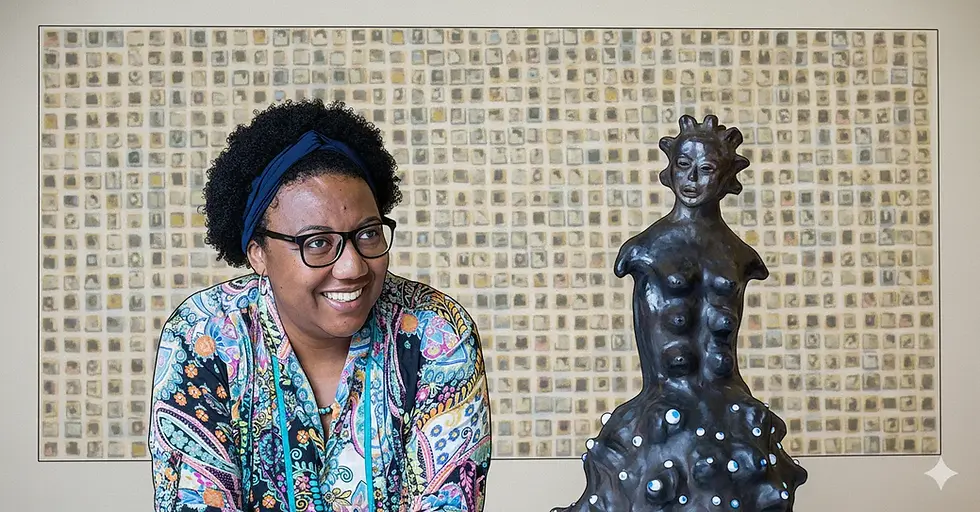Sigmund Freud, the guy who put mom in the middle
- Paulo Pereira de Araujo

- 4 de nov.
- 2 min de leitura
Lie down on the dusty couch and start talking…

Ah, Sigmund Freud. The man who looked at a cigar and said, “Sometimes a cigar is just a cigar (or worse).” But we all know that with him, nothing was ever just what it seemed. Freud was the guy who decided to open the human
mind like a messy drawer full of secrets we did not even know existed.
Inside, he found a mix of repressed desires, childhood traumas, and a worrying fixation in his mother. People, if you have ever dreamed about stairs, teeth falling out, or the downfall of Trump, Freud would say it all has to do with sexuality, the unconscious, or psychological conflicts we prefer to ignore.
He invented the unconscious, that psychological basement where we shove everything we do not want to face, only for it to come back disguised as symptoms, phobias, stuttering, or the sudden urge to call your ex.
Freud introduced us to concepts that feel like an internal soap opera: the ego, the id, and the superego, a true triad of emotional chaos where nobody understands anyone, yet everyone wants to be in control. He showed us that we are contradictory, confused, and that psychoanalysis is not magic; it is just a sophisticated way to look at the chaos and try to understand why it controls us.
How did Freud treat these neuroses? Simple: he put the patient on the couch and listened silently while they unraveled their traumas as if knitting anxiety. Sometimes he napped, sometimes he pretended to understand, but always returned with an interpretation that made everything seem like the mother’s fault, the father’s fault, or unresolved libidinal impulses.
Freud was accused of seeing sex in everything (and he did) but he also saw what nobody wanted to see: that humans are a mix of contradiction, confusion, and small defense mechanisms that make us unique and, naturally, a bit neurotic.
In the end, Freud did not cure everyone, but he left everyone more curious, more aware of their own psychology, and inevitably a little more neurotic. He taught us that understanding the human psyche is more important than solving every individual problem, and that looking at our dreams, fears, and repressed desires is a never-ending journey.
And what would Freud say about me, Horácio Guimarães? Probably something like: “A classic case of inflated ego, repressed desire, and sarcasm as a defense mechanism.” But deep down, Freud taught us that we are all a little like Horácio: ironic, confused, and fascinatingly complex, navigating life while the unconscious smirks quietly in the corner.







Comentários